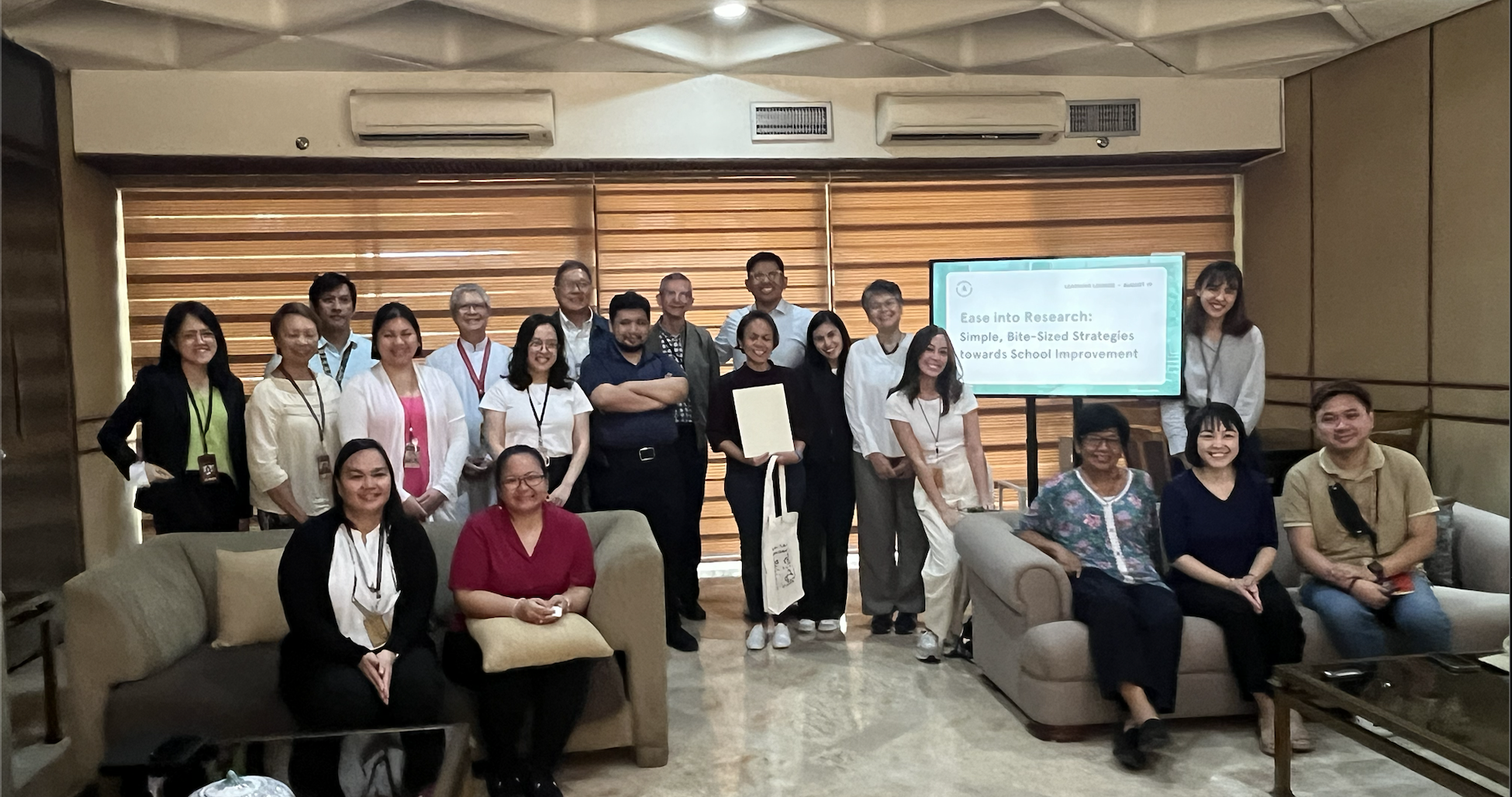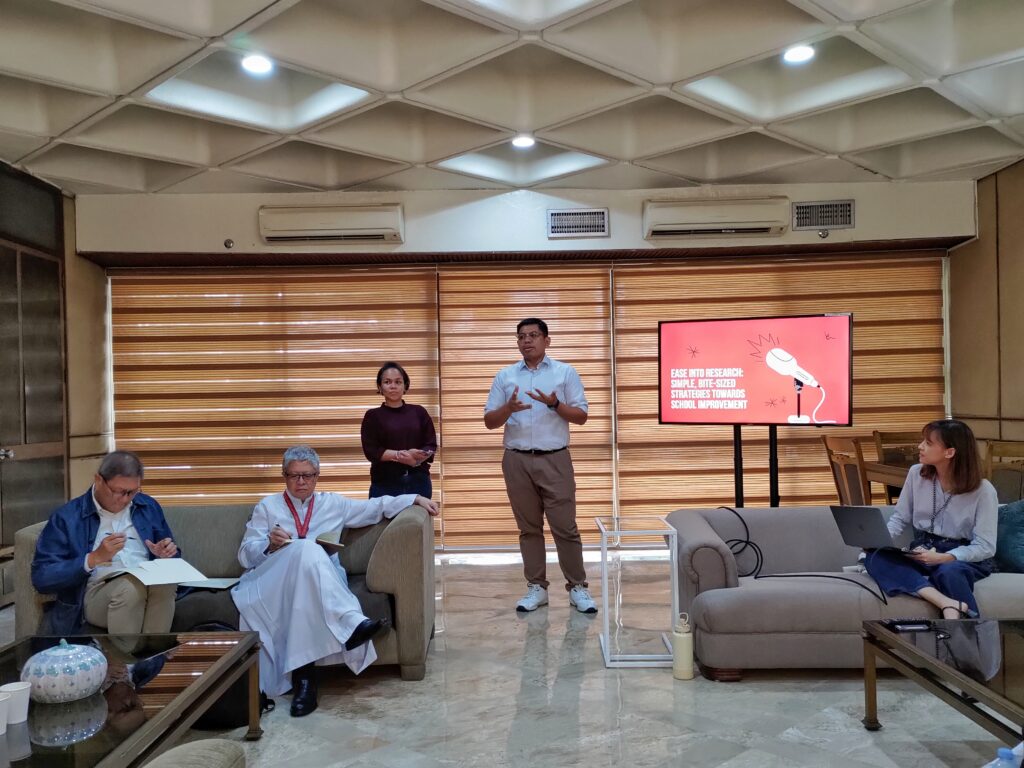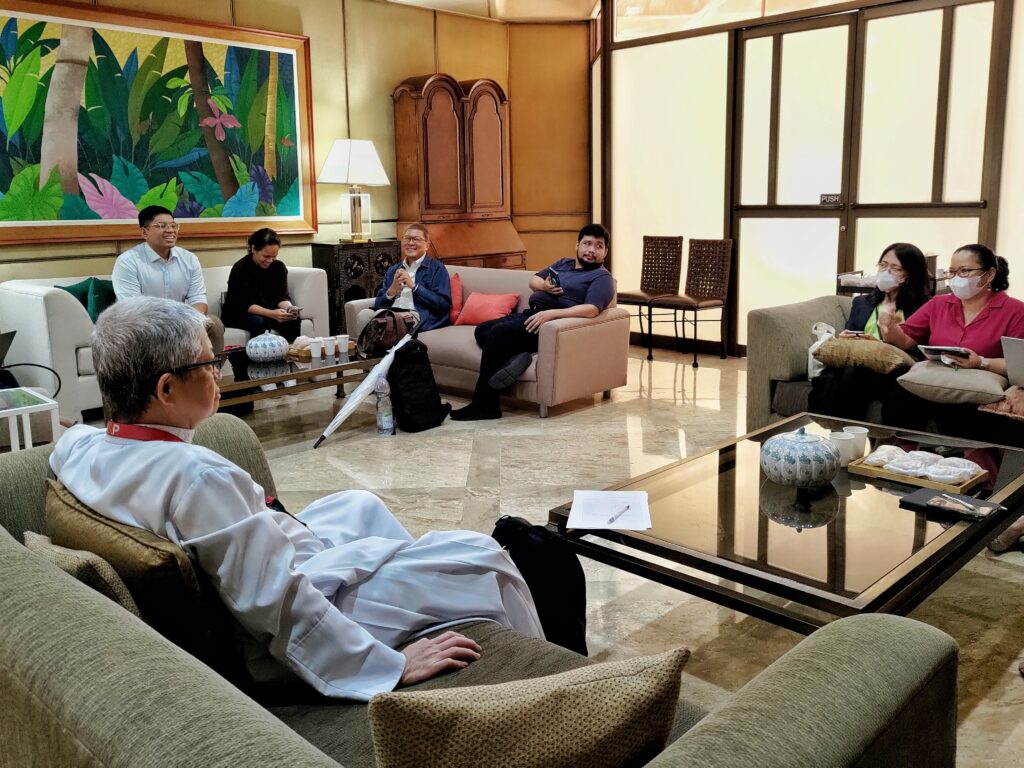Looking to enhance your school’s effectiveness through research-based practices? Here’s a recap of the first Learning Lounge of the year – “Ease into Research: Simple, Bite-Sized Strategies towards School Improvement,” led by Dr. Sam and Dr. June Macagba. In this informative session, our expert presenters shared practical tips and strategies to help teachers get a headstart on action research and apply its findings to their classrooms.

Main Takeaways:
- When we use the data we have to make even small improvements, that’s already research! We may not call it that, but we are already engaging in it.
- Research isn’t about making groundbreaking discoveries every time. So we can start small!
- The best way to start is with Action Research. Action Research is a method where people work together to solve a problem or improve a situation by taking action, reflecting on the results, and making changes based on what they learn. It’s a cycle of planning, acting, observing, and reflecting to create positive change. This approach is often used in education and community settings to make practical improvements. Action research is also typically “easier” than a full-blown research project because it’s more flexible, focused on immediate practical problems and with a narrower scope, and involves smaller, manageable steps. It allows for ongoing adjustments and quick application of findings, making it less time-consuming and complex.
You may access Dr. Sam and Dr. June’s presentation here.


We’ve also documented the key highlights from the Q&A session below:
In your experience, what are ways you have encouraged collaboration across departments/units?
- “To foster effective collaboration across departments or units, take the initiative to invite potential collaborators. Look for individuals who share your interests or possess complementary skills. A well-rounded team can bring diverse perspectives and expertise to the table.
Once you’ve assembled your team, establish clear expectations and responsibilities by creating a Terms of Responsibility (TOR) document. This will help ensure that everyone is aligned on goals, roles, and commitments. Consider holding a public signing ceremony to officially recognize the collaboration and demonstrate your commitment to working together.” - Remember, starting small is often the key to successful collaboration. Don’t feel pressured to tackle a grand project right away. Begin with a manageable scope and gradually expand your efforts as your team gains experience and confidence. By taking incremental steps, you can build momentum, learn from your successes, and avoid overwhelming yourselves.
Sometimes I feel the solution/answer/intervention to my research question is already obvious, is it still worth documenting?
Absolutely, even if the solution to your research question seems obvious, it’s still valuable to document your findings. While the general concept may not be groundbreaking, the specific context of your study can contribute to the broader body of knowledge. The participants will always change and the setting and methods may differ – and that differentiation may be the contribution of your research.
For example, consider research on the effectiveness of flipped classrooms. While this topic has been explored extensively, your study of 5th graders in the Philippines taking Philippine History offers a unique perspective. By documenting your findings, you can add to the existing literature, provide insights into the specific challenges and opportunities faced by your participants, and potentially inform future research and practice in similar contexts.
How do you keep up with the latest publication opportunities?
In our Office of the Dean of Research, there is a Research Coordinator per School/Department. They are in charge of compiling an updated (and legitimate) list of publication opportunities, awards, etc. Also watch out for predatory publications! Predatory publications often charge exorbitant fees, have low-quality editorial standards, and may not be indexed in reputable databases, so it’s important to be vigilant and avoid falling victim to their schemes.
Is there a system set up to encourage teachers to engage in action research?
- To foster a culture of action research, we have monthly meetings or workshops where teachers can discuss their research interests, share ideas, and seek guidance. These sessions can also be used to set goals, establish timelines, and determine the specific deliverables for each stage of the research process. So in the next monthly meeting, the teachers know which deliverables should be ready by then.
- Recognizing and rewarding teachers for their contributions to action research is essential. We can implement a system of public acknowledgment such as Award Ceremonies. Additionally, consider providing incentives or professional development opportunities to teachers who actively engage in research.
- Also make sure there is enough administrative support, especially for non-teaching research projects, and that they are recognized also
- To ensure that teachers can effectively engage in action research, administrative staff should be adequately equipped and supported. This includes providing necessary resources, such as time, technology, and materials, as well as offering technical assistance when needed. Additionally, the contributions of administrative staff to research projects should be recognized and valued in performance evaluations, professional development opportunities, and in public awarding ceremonies.
Thank you for attending the first Learning Lounge of the year! Thank you once again to Dr. Sam and Dr. June for joining us and sharing your wisdom! See you at the next Learning Lounge 😀